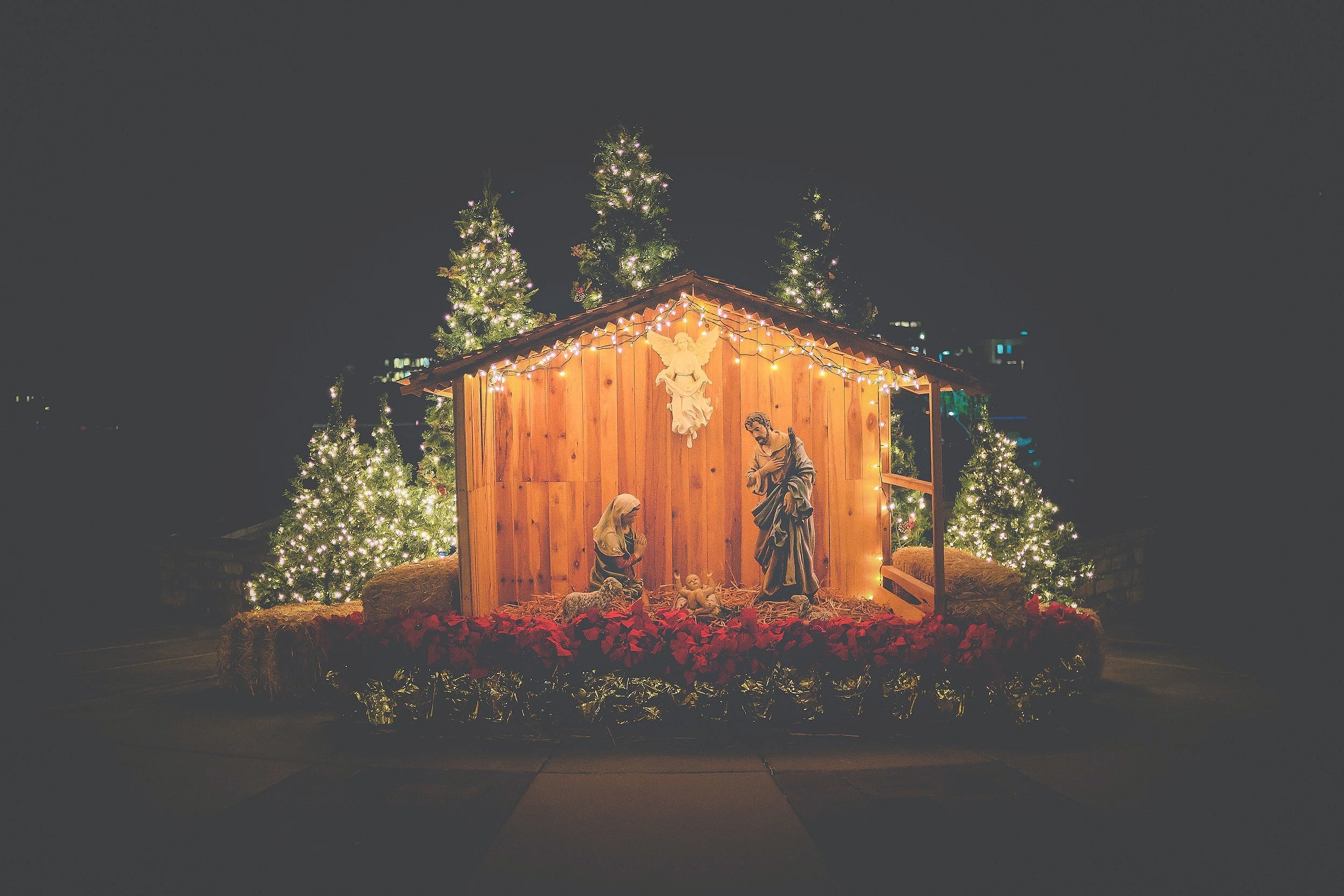The Wonder of The Incarnation
Among the many meanings of the Advent season, the one that fills my mind with the deepest sense of awe is the Incarnation. “Hark the Herald Angels Sing” has long been my favorite carol, and it captures the wonder and mystery of the Incarnation . . .
“The cosmos-shaper has come down to earth. Mary is counting his fingers and toes.”
And the Word became flesh and made his dwelling among us.
~ John 1:14
The Incarnation may be a neglected doctrine in a church culture that values pragmatism over mystery, but it is essential to our faith. The early Church Fathers saw the incarnation as the key to understanding the nature of God. The Reformers’ viewed the Incarnation as the lynchpin of salvation. We see in the Incarnation God’s promise to redeem all of creation.
“Veiled in flesh the Godhead see”
The early Christian Fathers all viewed the Incarnation as essential to understanding the nature of God. The consensus of the Church Fathers is expressed by Iraneaus, a bishop in Lyons (modern-day France) who lived in the second century AD: “There is, therefore, one and the same God, the Father of our Lord, who also promised, through the prophets, that He would send His forerunner; and His salvation—that is, His Word—He caused to be made visible to all flesh, Himself being made incarnate, that in all things their King might become manifest.” Jesus is the Creator who took on flesh like ours, revealing to us the nature of the Father. He himself said, “if you have seen me, you have seen the father.” (John 14:9) If you want to know God, look at Jesus. The Incarnation is the final and complete revelation of God.
If you want to know God, look at Jesus. The Incarnation is the final and complete revelation of God.
“Mild He lays His glory by, born that man no more may die”
The Reformers understood that the doctrine of justification by faith hinged on the doctrine of the Incarnation. In Institutes of the Christian Religion, John Calvin makes a striking statement about the importance of the Incarnation: “Now it was of the greatest importance for us that he who was to be our Mediator be both true God and true man . . . Since our iniquities, like a cloud cast between us and him, had completely estranged us from the Kingdom of Heaven, no man could serve as the intermediary to restore peace. But who might reach to him? . . . The situation would surely have been hopeless had the very majesty of God not descended to us, since it was not in our power to ascend to him.” It is essential to our salvation that Christ shares our humanity and God’s divine nature. Without being fully man, he would not be able to bear our sin. Without being fully God he would not be able to save us at all. The Incarnation is the rescue mission of God that accomplishes our salvation.
“Pleased as man with men to dwell, Jesus our Emmanuel”
Not only does God’s enfleshment reveal God to us and provide a mediator who can accomplish God’s rescue mission, it also affirms God’s commitment to redeem creation. In Genesis 1:31 we see God’s pronouncement that what He made, including humanity, is very good. But in Genesis 3 we discover the terrible effects of sin, both on humanity and creation. Sin mars the image of God and curses His good creation. The question is raised in the story of Noah, will God destroy what has been so greatly damaged? The Incarnation is God’s affirmation of the goodness of His creation and the announcement that He intends to repair, not destroy. C.S. Lewis explains this better than I ever could in his book, “Miracles”: “In the Christian story God descends to re-ascend. He comes down; down from the heights of absolute being into time and space, down into humanity . . . down to the very roots and seabed of the nature He has created. But He goes down to come up again and bring the ruined world up with Him.” God’s desire is to restore, repair, and redeem. It is God’s pleasure to dwell among us for the purpose of restoring all of creation. The Incarnation is God’s “yes” to his creation cries for restoration.
“Glory to the newborn King”
My hope for this Advent is that we would spend some time contemplating the mystery of the Incarnation and that this contemplation would provoke wonder that leads to worship; that as we behold the revelation of God, experience the salvation of God, and receive the affirmation of God, we would join the angels in singing, “Glory to God in the highest!”


